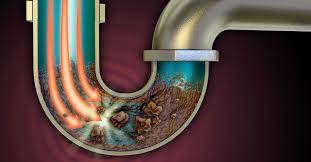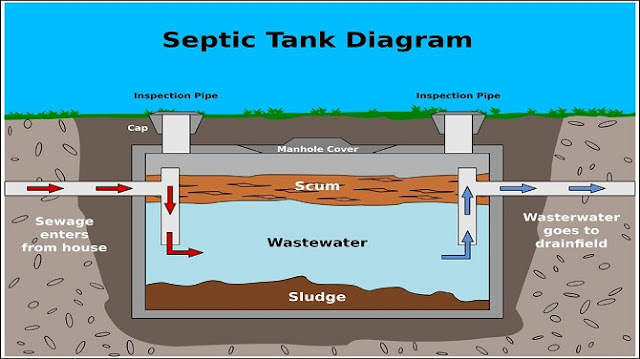Which chemical is used to unblock clogged pipes?
Which Chemicals Are Used to Unblock Clogged Pipes? Pros, Cons, and Safety
Clogged pipes can be a frustrating and inconvenient problem in homes and businesses. When traditional methods like plungers and drain snakes fail to clear the blockage, many people turn to chemical drain cleaners as a quick solution. While chemical drain cleaners can be effective at removing clogs, it's important to understand the types of chemicals used, their pros and cons, and, most importantly, how to use them safely. In this article, we will explore the common types of chemicals used to unblock clogged pipes and provide insights into their applications and safety considerations.
Common Chemical Drain Cleaners
Chemical drain cleaners typically fall into one of three categories: caustic, oxidizing, or acid-based. Each type has its own set of chemical properties and is designed to break down different types of clogs. Here's an overview of each category:
Caustic Drain Cleaners
Caustic drain cleaners, also known as alkaline drain cleaners, are typically sodium hydroxide (lye) or potassium hydroxide-based. They work by generating heat when they come into contact with water. This heat helps to dissolve organic materials, such as hair, soap scum, and grease, which are common causes of clogs.
Pros of Caustic Drain Cleaners:
Effective at breaking down organic materials.
Readily available in most hardware stores.
Relatively affordable.
Cons of Caustic Drain Cleaners:
Can release harmful fumes when mixed with other chemicals or substances.
May damage some types of plumbing, particularly if overused.
Not effective against mineral deposits or non-organic clogs.
Oxidizing Drain Cleaners
Oxidizing drain cleaners use substances like peroxides, nitrates, and bleach to create a chemical reaction that releases oxygen. This oxygen can break down clogs made up of organic materials or minor hair and soap scum buildup.
Pros of Oxidizing Drain Cleaners:
Effective against organic clogs.
Less likely to damage pipes compared to caustic drain cleaners.
Can help remove minor odors caused by clogs.
Cons of Oxidizing Drain Cleaners:
Limited effectiveness against stubborn clogs, particularly those caused by mineral deposits.
May not be as fast-acting as caustic drain cleaners.
Acid-Based Drain Cleaners
Acid-based drain cleaners, such as sulfuric acid or hydrochloric acid, are effective at dissolving mineral deposits, rust, and calcium buildup. They are typically used to address more severe clogs caused by these substances.
Pros of Acid-Based Drain Cleaners:
Effective at removing mineral deposits and rust.
Can be useful in commercial settings where pipe materials are different from those in residential plumbing.
Cons of Acid-Based Drain Cleaners:
Highly corrosive and can damage plumbing pipes.
Generate toxic fumes and require careful handling.
Not suitable for regular maintenance or minor clogs.
Safety Considerations
When using chemical drain cleaners, it's crucial to prioritize safety. Here are some key safety considerations:
Use Protective Gear
Always wear appropriate protective gear when handling chemical drain cleaners. This includes safety goggles, gloves, and clothing that covers your arms and legs. These chemicals can be harmful if they come into contact with your skin or eyes.
Good Ventilation
Ensure that the area where you are using the drain cleaner is well-ventilated. Open windows and doors to allow fresh air to circulate and help dissipate any fumes that may be released during the cleaning process.
Read and Follow Instructions
Read the product label and follow the manufacturer's instructions carefully. Each chemical drain cleaner has specific usage guidelines, including the recommended dosage and safety precautions. Adhering to these instructions is crucial for effective and safe use.
Do Not Mix Chemicals
Never mix different chemical drain cleaners, as this can result in dangerous chemical reactions and release harmful fumes. Additionally, avoid mixing chemical drain cleaners with other household cleaning products.
Keep Children and Pets Away
Store chemical drain cleaners out of the reach of children and pets. These products can be highly toxic if ingested or touched. Ensure that children and pets are not in the vicinity when you are using chemical drain cleaners.
Consider Alternatives
If you are uncomfortable using chemical drain cleaners or have concerns about their safety, consider using alternative methods to clear clogs. Non-chemical options include using a plunger, a drain snake, or a mixture of baking soda and vinegar.
Dispose of Residues Properly
After using chemical drain cleaners, dispose of any remaining product and containers according to local regulations. These products are considered hazardous waste and should not be thrown in the trash or poured down the drain.
The Role of Professionals
In some cases, especially for persistent or complex clogs, it may be best to seek the assistance of a professional plumber or drain cleaning service. Professionals have the experience and equipment to diagnose and address clogs effectively while minimizing the risk of damage to your plumbing system.
Moreover, a professional can assess the cause of the clog and recommend preventive measures to avoid future blockages, such as installing drain screens or advising on proper waste disposal practices.
Conclusion
Chemical drain cleaners can be effective tools for clearing clogs in plumbing systems, but they should be used with caution and in accordance with safety guidelines. Understanding the different types of chemical drain cleaners and their pros and cons is crucial when selecting the appropriate product for your specific clog.
Prioritizing safety is paramount when using chemical drain cleaners, and it's essential to follow the manufacturer's instructions, wear protective gear, and provide good ventilation. Additionally, consider alternative methods for clearing clogs, especially if you have concerns about the use of chemicals.
Ultimately, when in doubt or when dealing with complex or recurring clogs, it's advisable to consult a professional plumber or drain cleaning service for effective and safe resolution of plumbing issues.




Comments
Post a Comment